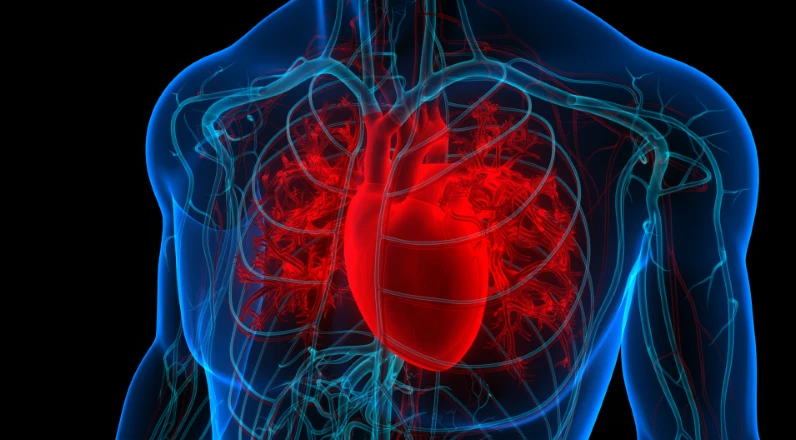Authored by Terrence Shenfield MS, RRT-ACCS, RPFT, NPS, AE-C
Eating for your heart is more than just a health tip; it’s a long-term investment in living a longer, healthier life. With heart disease being one of the leading causes of death worldwide, adopting a daily heart-healthy diet is a simple yet significant way to support your cardiovascular health and prevent potential issues.
This guide dives into the best heart-healthy foods, their benefits, and how you can incorporate them into your meals every day.
Why Does Heart Health Matter?
Your heart works tirelessly, pumping life-giving blood and oxygen through your body. However, poor dietary choices, stress, and inactivity can strain this critical organ. A diet rich in foods for heart health can significantly lower the risks of heart disease, strokes, and other cardiovascular conditions while also improving overall wellness.
Learn more about maintaining a healthy heart with resources from ATECAM's Heart Health category.
Benefits of Eating a Heart-Healthy Diet
Including heart-healthy foods in your diet delivers a range of benefits, including:
- Reduced Risk of Heart Disease: Nutrient-rich foods lower cholesterol, blood pressure, and inflammation.
- Improved Energy Levels: Balanced meals help stabilize blood sugar levels, leaving you feeling more energetic.
- Weight Management: A heart-friendly diet naturally supports healthy weight loss.
- Longevity: eating for your heart can extend your lifespan by reducing the likelihood of chronic diseases.
The Best Foods for Heart Health
Fruits and Vegetables
These nutrient powerhouses are high in fiber, vitamins, and minerals. Leafy greens like spinach, kale, and Swiss chard are excellent, while berries (blueberries, strawberries, and raspberries) are full of antioxidants that support the heart.
Aiming for 5-6 servings of fruits and vegetables daily can satisfy a key portion of your daily heart-healthy diet.
Whole Grains
Whole grains such as oats, brown rice, and quinoa are an excellent source of dietary fiber, which can help reduce bad cholesterol (LDL). These grains play a vital role in improving digestion and stabilizing blood sugar.
For a deeper look into nutritious choices, visit ATECAM’s resources at their homepage.
Fatty Fish
Omega-3 fatty acids found in fish like salmon, mackerel, and sardines reduce inflammation and minimize the risk of arrhythmias. Aim for at least two servings of fatty fish per week for maximum benefit.
Learn more about Omega-3 benefits in ATECAM’s article on High Potency EPA DHA for Heart Health.
Nuts and Seeds
Almonds, walnuts, flaxseeds, and chia seeds are rich in healthy fats, fiber, and plant protein. They make for an excellent snack or meal topper to bolster heart health.
Legumes
Beans, lentils, and chickpeas are low in fat and packed with fiber, protein, and potassium, all of which are beneficial to stabilizing blood pressure.
Dark Chocolate
Yes, chocolate can be good for your heart—as long as it’s dark and at least 70% cocoa. It contains flavonoids that help reduce blood pressure and improve circulation.
Healthy Oils
Swap out saturated fats like butter for heart-healthy alternatives such as olive oil and avocado oil. These oils are rich in monounsaturated and polyunsaturated fats, which help lower cholesterol.
Tips to Build a Heart-Healthy Routine
Designing your routine around heart-healthy foods doesn’t need to be complicated. Follow these actionable steps to get started:
- Plan Balanced Meals: Incorporate a mix of lean protein, whole grains, and vegetables in each meal.
- Snack Smart: Replace processed snacks with nuts, fruits, or yogurt to improve your nutrition on the go.
- Cut Down on Sodium: Limit high-sodium foods like pre-packaged meals and condiments. Herbs and spices make a flavorful, healthier alternative.
- Stay Hydrated: Water supports every bodily function and keeps your heart working efficiently.
For additional insights, explore ATECAM or get inspired by their curated categories.
Lifestyle Changes That Complement Your Diet
While diet plays a significant role, combining it with the following lifestyle practices ensures a comprehensive approach to heart health:
- Move More: Aim for at least 30 minutes of moderate exercise most days of the week.
- Manage Stress: Practice relaxation techniques like yoga, meditation, or even deep breathing.
- Sleep Well: Adequate sleep (7–9 hours) aids in maintaining healthy blood pressure and reducing the risk of cardiovascular issues.
- Quit Smoking and Limit Alcohol Consumption
How ATECAM Can Help
ATECAM is your partner in holistic well-being, offering evidence-based educational resources and premium wellness solutions. Our expertise in heart health can guide you in building sustainable, healthy eating habits.
Visit the ATECAM homepage to start exploring resources tailored for health-conscious individuals like you.
5 References for Further Reading
- American Heart Association (2023). "Healthy Eating for Heart Health."
- Harvard Health Publishing (2022). "Dietary Guidelines for Heart Disease Prevention."
- National Institutes of Health (NIH). "Nutritional Interventions in Cardiovascular Health."
- Mayo Clinic (2023). "Top Foods to Keep Your Heart Healthy."
- ATECAM’s Heart Health Resources.
By making small, consistent changes, you can improve your heart health and overall quality of life. Start today!



